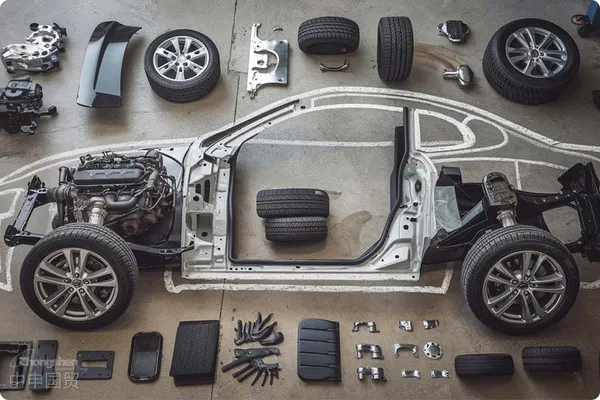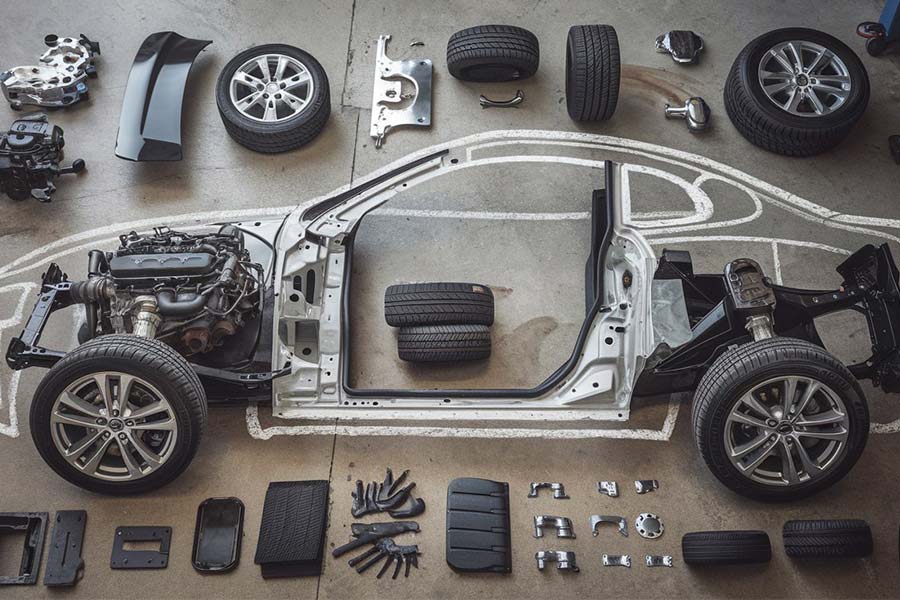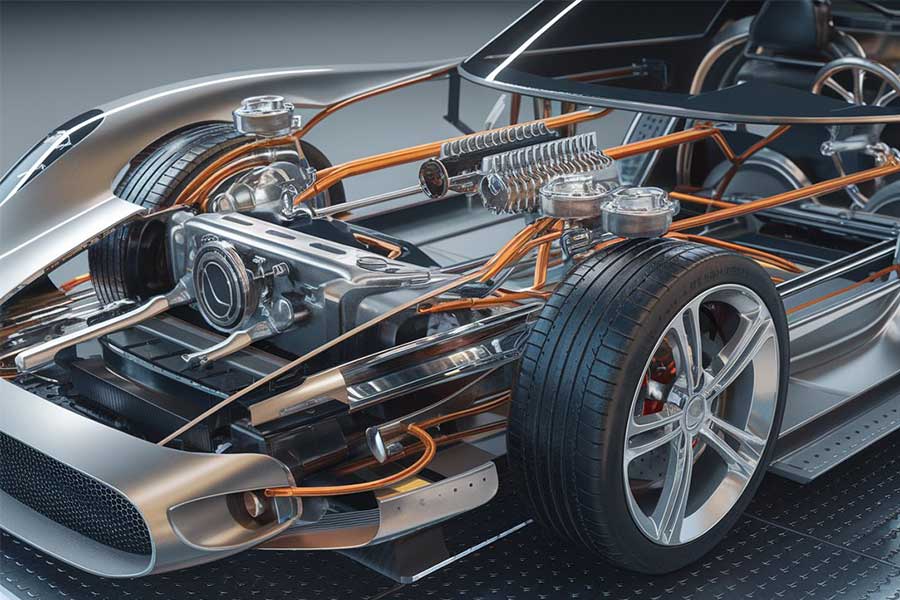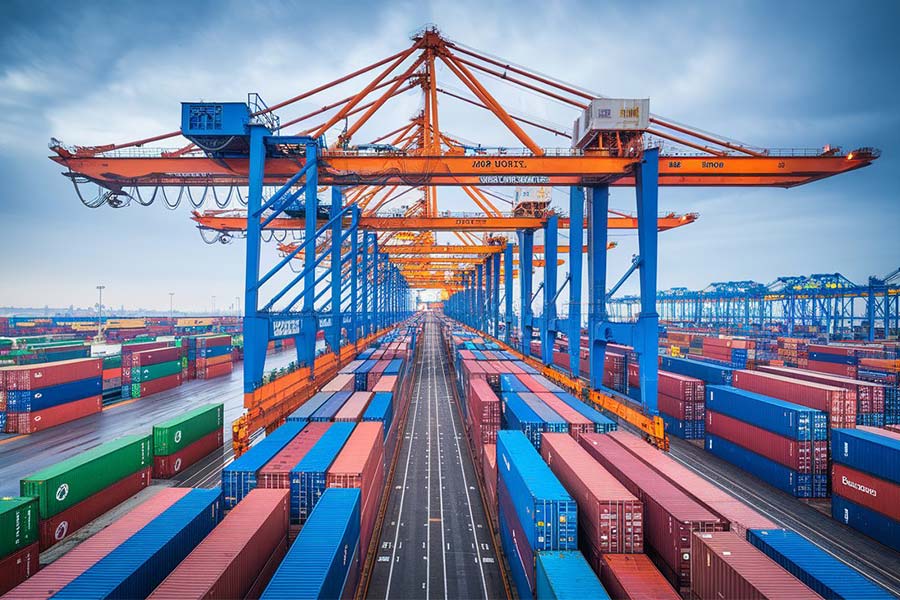- Shanghai Zhongshen International Trade Co., Ltd. - Two decades of trade agency expertise.
- Service Hotline: 139 1787 2118

With the continuous expansion of China's automotive aftermarket (exceeding 1.3 trillion yuan in 2023) andNew energyThe booming development of the automotive industry,Automotive partsImport demand continues to grow. As a company with 20 years of...foreign tradeAs a practitioner with experience in agency services, I will analyze for importers how to choose professional automotive parts from dimensions such as industry status, enterprise selection criteria, and service capability evaluation.Import RepresentationService provider.
Contents
ToggleI. Characteristics of the Automotive Parts Import Industry and Challenges in Agency Services
1.It covers multiple categories such as powertrains, body structures, and electronic systems, with significant differences in customs codes (HS Codes) (for example, 8708 represents body parts, and 8539 represents automotive electronic accessories). Sign products need to comply with the international standard of VIN (Vehicle Identification Number), involving details such as materials and marking content.
Covering 18 major categories including engine systems, electronic components, safety devices, etc., involving over 2,000 HS codes, requiring precise classification.
2.: Cylinder blocks must meet original material standards (such as GG20 cast iron, aluminum alloy), casting processes (high-pressure casting, low-pressure casting), and precision requirements (tolerance ≤0.02mm), making it difficult for unauthorized channels to ensure quality.
Original parts from European, American, and Japanese automakers require VIN code matching, while new energy vehicle components involve special regulations such as lithium batteries.
3.Stringent timeliness requirements
The urgent orders from 4S stores must achieve a logistics lead time of "72-hour customs clearance + 7-day warehouse arrival."
4.Concentration of compliance risks
It involves 13 types of access requirements, including CCC certification, energy efficiency labeling, and environmental standards (such as REACH regulations).
II. Six Core Evaluation Criteria for High-Quality Import Agency Service Providers
1. Corporate Qualifications and Industry Endorsements
- Customs AEO Advanced Certification Enterprise (Customs clearance efficiency improved by over 30%)
- FIATA Certification for International Freight Forwarding
- Whether to establish a dedicated service team for the automotive industry (it is recommended to choose a service provider equipped with personnel certified in the VDA6.3 system).
2. Vertical domain operational experience
- The success case repository should include:
? OEM factory import projects (such as Bosch, Denso and other Tier 1 suppliers)
? Cross-border E-commerceBonded warehouse stock preparation (hands-on experience with 1210/9610 models required).
? Return of old parts for factory repair (requires familiarity with the ECER90 certification process)
3. Global Service Network Capability
- Overseas pickup covers the three major automotive industry belts in North America, the EU, and Japan.
- Deploy at least 5 major core ports domestically (such as Shanghai Yangshan Port, Guangzhou Nansha Port, etc.).
- Possess self-operated bonded warehouses (it is recommended to choose service providers equipped with constant temperature warehouses and anti-static warehouses)
4. Compliance and Risk Control System
- Establish a pre-classification database for commodities (with an accuracy rate of 98% or higher).
- We offer full-process certification agency services (CCC self-declaration, E-mark certification, etc.).
- Possesses Class A customs broker qualification (error rate below 0.5%)
5. Cost Control Model
- Provide tariff planning solutions (such as utilizing rules of origin to reduce tax rates).
- The logistics plan must includeMaritime TransportationLCL optimization (reducing transportation costs by over 30%)
- Possess futures hedging capability (to mitigate exchange rate fluctuation risks)
6. Digital service capability
- The cargo tracking system needs to interface with the vehicle factory's ERP (supporting SAP/Oracle and other interfaces).
- Customs declaration progress visualization (real-time updates on customs document review status)
- Big Data Early Warning System (Automated Monitoring of Declaration Element Changes)
III. Competitiveness Analysis of Major Domestic Service Providers (2023 Industry Data)
| Enterprise type | : Comprehensive foreign trade groups with an automotive industry background, such as Li & Fung Supply Chain, Orient International, etc. | Core advantages | Applicable scenarios |
|---|---|---|---|
| Background of central state-owned enterprises | Zhongjin International Trade | The OEM has abundant resources (serving FAW, GAC, etc.). | Bulk OEM parts import |
| Listed company | Sinotrans Limited | With 56 branches worldwide,Air TransportationThe trunk line has obvious advantages. | Urgent Order/High-Value Precision Components |
| Hong Kong-funded enterprise | Litong Logistics | Hong Kong Free Port Transit, specializing in parallel import auto parts. | Import of modified parts for US-spec vehicles |
| Professional supply chain company | Feili Da | The WMS system is deeply integrated with the plant's MES. | JIT zero inventory management model |
| Regional leader | Shanghai XinHai Customs Brokerage | The Yangtze River Delta next-day delivery network, with extensive experience in handling tariff disputes. | Regional Distributor for Jiangsu, Zhejiang, and Shanghai |
IV. Three Golden Tips for Importers
1.Prioritize "full-service providers"
To avoid supply chain disruptions caused by the shirking of responsibilities among freight forwarders, customs brokers, and warehousing parties, a certain German brand once incurred a port demurrage loss of 2 million yuan due to segmented outsourcing.
2.Focus on validating technological investments
Request the service provider to demonstrate its AI pre-clearance system for customs declaration, where high-quality enterprises can achieve "5-minute intelligent verification of declaration documents."
3.Establish long-term strategic partnerships
Leading proxy service providers can offer stable clients:
? Annual Tariff Bond System (Alleviating Financial Pressure)
? Dedicated customs manager with one-on-one service
? Quarterly Supply Chain Optimization Report
Conclusion
The selection of automotive parts import agency services is directly related to the security of a company's supply chain and operational costs. It is recommended that importers conduct a comprehensive evaluation from three dimensions: "industry focus + service granularity + technical penetration," prioritizing service providers with successful cases in specific vehicle parts sectors. Amid the current surge in imports of new energy vehicle parts, special attention should be paid to the service provider's capability reserves in emerging areas such as lithium battery transportation and chip traceability.
(Note: The data in this article is sourced from the China Association of Automobile Manufacturers, the General Administration of Customs, and industry research. Please refer to the actual needs of the enterprise for specific services.)
Related Recommendations
? 2025. All Rights Reserved. Shanghai ICP No. 2023007705-2  PSB Record: Shanghai No.31011502009912
PSB Record: Shanghai No.31011502009912









